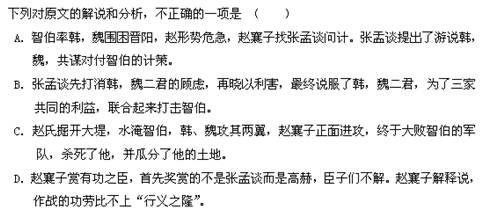I woke up late and had breakfast in a hurry. I had never been late and didn’t want my boss to be unsatisfied.
However, it seemed that day wasn’t a lucky one for me from the very second I left my flat. The moment I wanted to rush downstairs one of my stiletto heels(细高跟) broke. I had to return to change my red shoes. I also had to change my purse and other little things that I had tried to match the red shoes. I was sure I would be late for work.
On my way to work I had to wait for over half an hour because of an accident. I had no choice but to wait. I phoned my boss and he told me that it was no problem, but he needed me for the meeting with the Japanese clients(客户) that morning.
Finally, I arrived at the office one hour later. I had to keep calm and be fresh for the meeting to make the clients sure that our plan was the best for their future commercial(商业的) project. However, when I was going to present(介绍) it to the clients, I found that I left the plan I had made the night before at home. I was about to get angry when I realized that I had a draft(草稿) of it in my office.
At last, the presentation came to an end and it proved to be a success. But I had to say that I had a terrible day, full of incidents.
小题1:Which of the following is NOT the reason for the writer’s being late for her work?
- She got up late in the morning.
- She changed her purse and other little things.
- One of her shoe heels broke.
- She had to wait for her friend for half an hour..
- Her boss was very angry with her.
- She often arrived at her office on time.
- She left her plan on the bus.
- She was nervous at the meeting.
A.Dull.
B.Just so-so.
C.Excellent.
D.Terrible.
小题1:D
小题1:B
小题1:C


